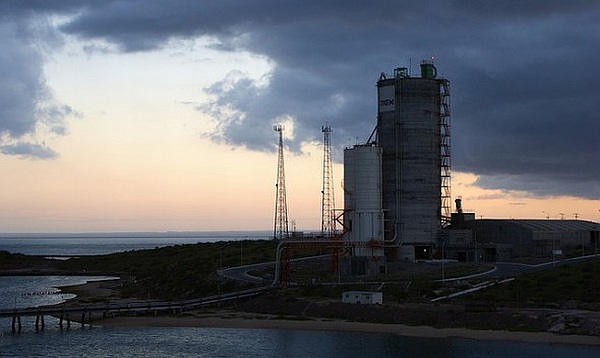Washington, D.C. - Mexico, which has monopoly power over its oil production and sales, has the world’s highest level of energy security, according to a US Chamber of Commerce study of the largest energy-consuming nations.
The government-owned Petroleos Mexicanos ranks among the world’s largest oil companies while Mexico’s energy expenditures and carbon dioxide emissions per person are relatively low, according to the study released this week that reviews data for twenty-five nations from 1980 to 2010.
"They are a very resource-rich country with very low energy use per person," Karen Harbert, president of the Chamber’s Institute for 21st Century Energy, said yesterday at a Washington news conference, noting Mexico may not hold the status in the future. "Oil production is going down in Mexico and their transportation use is going way up."
Energy production has been a national security concern for the US at least since the 1970s Arab oil embargo caused gasoline prices to soar. The United States imported about 45 percent of its petroleum last year, with about 22 percent originating in the Middle East, according to the US Energy Information Administration.
US dependence on energy imports has declined since 2005, amid the global economic slowdown and increased reliance on other fuels including natural gas, the agency said.
Ranked Seventh
The United States, which ranked seventh in the energy-security report, may become a net exporter of natural gas by the end of this decade, sooner than a previous government estimate of reaching that status by about 2022, EIA Administrator Adam Sieminski said at a US Chamber event to release the industry group’s report.
The "growth in shale gas and tight oil has made an unbelievable difference to energy security in the US," he said. "This looks like a pattern that is set to continue."
While Mexico ranks highest in security, risks to that status are increasing, according to the report. Although the nation is the world’s seventh-largest oil producer, its output is declining and natural-gas imports have increased since 1989, the report said.
The study examined 28 metrics including fossil-fuel imports, power generation, and carbon dioxide emissions, primarily using data from the United States Energy Information Administration and the Paris-based International Energy Administration.
Norway, Ukraine
The report shows nations where energy security is least at risk are the UK, Norway, New Zealand, Denmark, Australia, and the United States. Energy-security risk is highest in Ukraine, followed by Thailand, South Korea, the Netherlands, Brazil, Italy, Turkey, and Japan, it states.
"With no domestic energy resources of any consequence, Japan imports virtually all of its fuels," according to the report.
Japan is reducing reliance on nuclear energy after an earthquake and tsunami in March 2011 triggered a triple meltdown at Tokyo Electric Power Co. (9501)’s Fukushima Dai-Ichi plant. The accident created public opposition to nuclear power, and under current plans all Japanese atomic plants will be shut this year, according to the report.
China, the world’s second-largest economy, ranked 15th on the Chamber’s list.
"China’s domestic energy production has not been able to keep pace with demand, and it imports a growing portion of the fuel it uses," according to the report.


